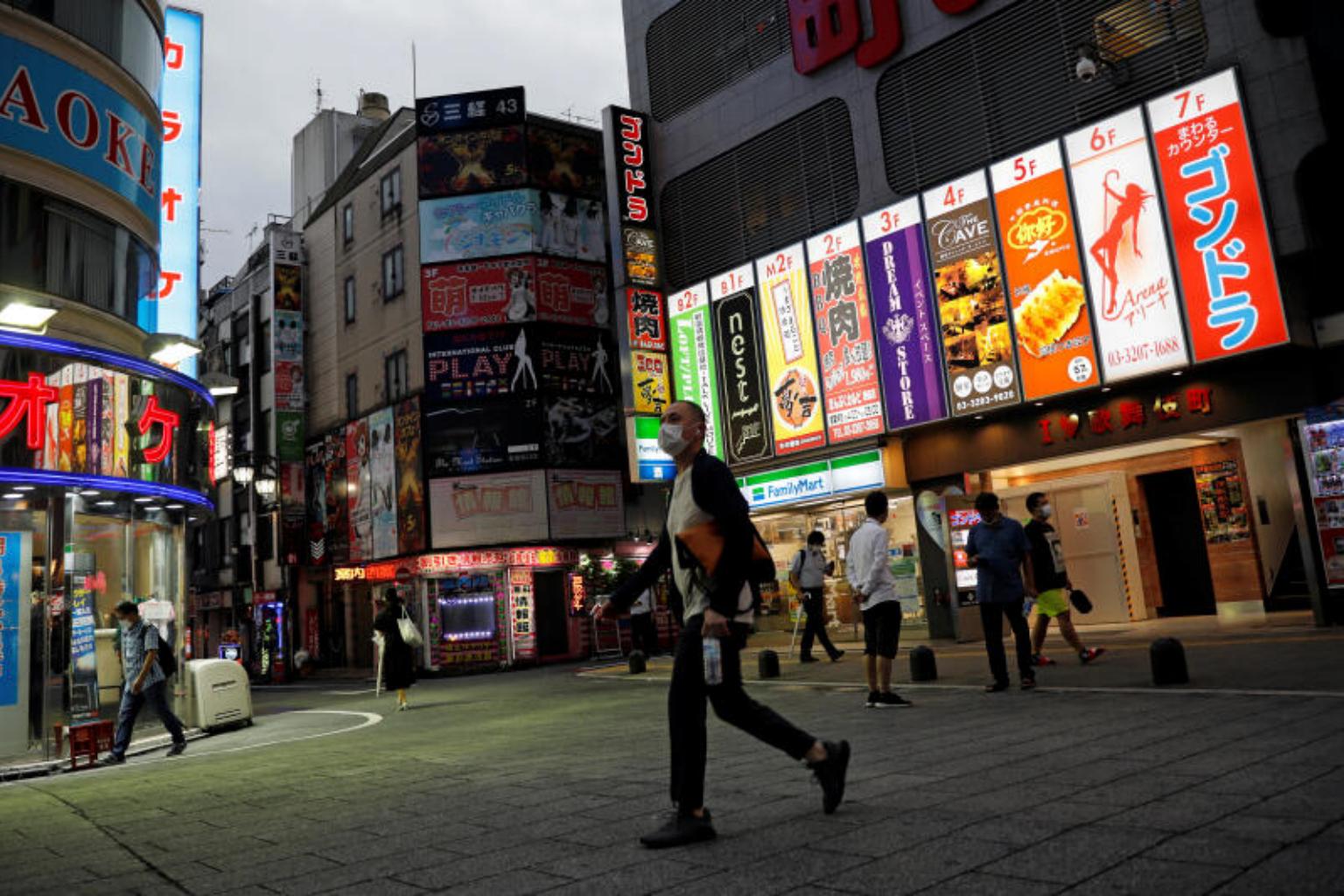Tokyo on top virus alert as travel campaign comes under fire
Sign up now: Get ST's newsletters delivered to your inbox

A man walks in the Kabukicho district, in Tokyo, Japan, on July 14, 2020.
PHOTO: REUTERS
Follow topic:
TOKYO (REUTERS, AFP, BLOOMBERG) - Tokyo is on its highest coronavirus alert level after a spike in cases to record numbers in the Japanese capital city, its governor warned Wednesday (July 15), as experts said the rising infections were a clear "red flag".
The city found 165 cases of coronavirus on Wednesday, an increase from 143 on Tuesday.
Fifteen workers at a construction site tested positive.
"The experts just told us that the situation of infections is at the fourth level of the four-level system, which means 'the infections seem to be spreading,'" Governor Yuriko Koike said during a meeting on the virus.
Her comments came after a panel of experts said the city was seeing a spike in younger people infected with the virus, with cases in nightlife areas but also workplaces and in families.
But the move to a "red" alert does not mean the city will ask businesses to close or events to be postponed.
Even during a national state of emergency in April, there was no "lockdown" in Japan of the type seen in Europe.
"Our assessment is that can't but say this is the red flag, the highest level, if we simply look at numbers," said Norio Ohmagari, an expert on the panel.
Prime Minister Shinzo Abe lifted a nationwide state of emergency in late May and appears to have little appetite to reintroduce it, with the economy suffering its first recession since 2015.
But new daily cases have climbed after the state of emergency was removed, reaching a fresh record last week of 243 in Tokyo, the epicentre of the fresh outbreak.
Authorities say many of the new cases come from night-life entertainment districts in the capital and those infected appear to be people in their 20s and 30s, who are less likely to become seriously ill with the coronavirus.
The latest cluster has been traced to a theatre with at least 37 cases in Shinjuku, a busy entertainment area and home to one of Asia's biggest red-light districts which has been the centre of a recent spike in infections.
Fearing a second wave of infections spreading from the capital, local municipalities and opposition lawmakers have urged the central government to suspend a major campaign aimed at boosting domestic tourism.
Economy Minister Yasutoshi Nishimura, however, said on Wednesday the government would proceed with the so-called "Go To" travel aid campaign, which includes offers such as discounts for shopping and food, but move cautiously.
"Obviously we will consider the thoughts of many of our people, while monitoring the situation ahead," Nishimura, who leads the government's coronavirus policy, told parliament.
The programme is one of the biggest outsourcing contracts in a stimulus budget announced in April, but has already been postponed due to public criticism over the cost of subcontracting back-office work to a private contractor.
The campaign, starting this month, has also come under fire on social media, with the coronavirus fuelling an unusual outburst of political anger on social media networks in Japan.
Meanwhile, authorities have confirmed 36 more coronavirus infections at Camp Hansen on Japan's Okinawa, taking to 136 the tally at US military bases on the island, Kyodo News said on Wednesday.
The outbreak emerged at the weekend, provoking the anger of the prefecture's governor, who has called into question the US military's virus prevention measures.
More than 60 new infections were found in Osaka prefecture, Nikkei reported, evidence that areas outside Tokyo are also seeing rising numbers of cases.
Despite the latest outbreak, the situation in Japan remains considerably less serious than in many other comparable countries in terms of population.
As of Wednesday, there were only seven people requiring intensive care for coronavirus and authorities have insisted that the medical system is in better shape than at the height of the previous wave in April.
Japan has had just over 22,500 cases and close to 1,000 deaths since the disease was first detected in the country.
No one has died of coronavirus in Tokyo for three weeks.

